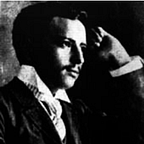Unit 8-Workshopping and Project Completion
“Research is formalized curiosity. It is poking and prying with a purpose.”
— Zora Neale Hurston
In this final unit of our course, we’ll focus entirely on completing the Research Project and you’ll have the opportunity to reflect on your learning experience in our class this semester.
Please review Steps 3 and 4 of the Research Project instructions by clicking here or by using the link in the menu at the top of the page. Think carefully about the way you would like to present your research to the rest of us. You can do so in an essay here on Medium, or you can use other digital platforms such as those listed in Step 3. Remember that is a list of suggestions and ideas — if you want to use a platform that isn’t listed there, that is more than fine.
Whatever platform you use for your project, remember that you need to make and support an argument that addresses your research question and presents your original interpretation of the source evidence you’ve consulted. This guide by historian L.D. Burnett contains some excellent tips for thinking about how to construct a strong argument supported by historical evidence.
Once you’ve finished the first draft of your project, paste a link to it in this spreadsheet. We’ll use the spreadsheet to set up the peer-review step of the project.
Your first draft, with link shared in the class spreadsheet, is due on Thursday, December 2, by 11:59 pm MST.
Once you’ve submitted your link to the Google Sheet, I’ll place you in a peer review group. Refer to the sheet (link above) to find the links to two classmates’ first drafts that you’ll review. As indicated in Step 4 of the Research Project instructions, you’ll need to address the following in your feedback to your peers:
- Thesis statement (is it easy to identify? How strong is the thesis?)
- Evidence (can you clearly identify the evidence used? Is it relevant to the thesis?)
- Interpretation (does interpretive commentary contextualize and explain the relevance of the evidence to the thesis?)
- Conclusion (is a conclusion present and does it emphasize the main point and ideas that readers should take away from the project?)
- Other suggestions for improving style and clarity (was the line of reasoning clear and easy to follow?)
Also in the sheet, I’ll provide a link to a Google Doc where you’ll write your feedback to your peers (that way, we’ll be able to find everyone’s comments to each other in an easily-accessible, centralized location). Above all, strive to leave thoughtful, helpful, kind feedback that will allow your peers to strengthen their work and improve their application of Historical Thinking skills.
Please send your feedback to classmates no later than Monday, December 6, by 11:59 pm MST. If you’re able to complete your feedback sooner, that’s even better. The idea is to provide feedback soon enough that everyone will be able to use it in making their final revisions to the project.
Once you receive feedback from your classmates, revise your project accordingly to prepare it for final submission. Create a Medium Post in which you share a link to your completed project (still do this even if you’ve completed your project as a Medium post) and write a short paragraph (or share a short video or set of images — remember that non-written responses on Medium are valid) in which you reflect on
- the most important thing that you learned in our class this semester
- what questions you still have about topics we’ve studied
- what other topics or issues you wish we would have studied that we didn’t
- any other comments about your experience in our course
Final drafts and reflections are due on Friday, December 10, by 11:59 pm MST. [Please note that the final day of class is a FRIDAY rather than a Sunday].
